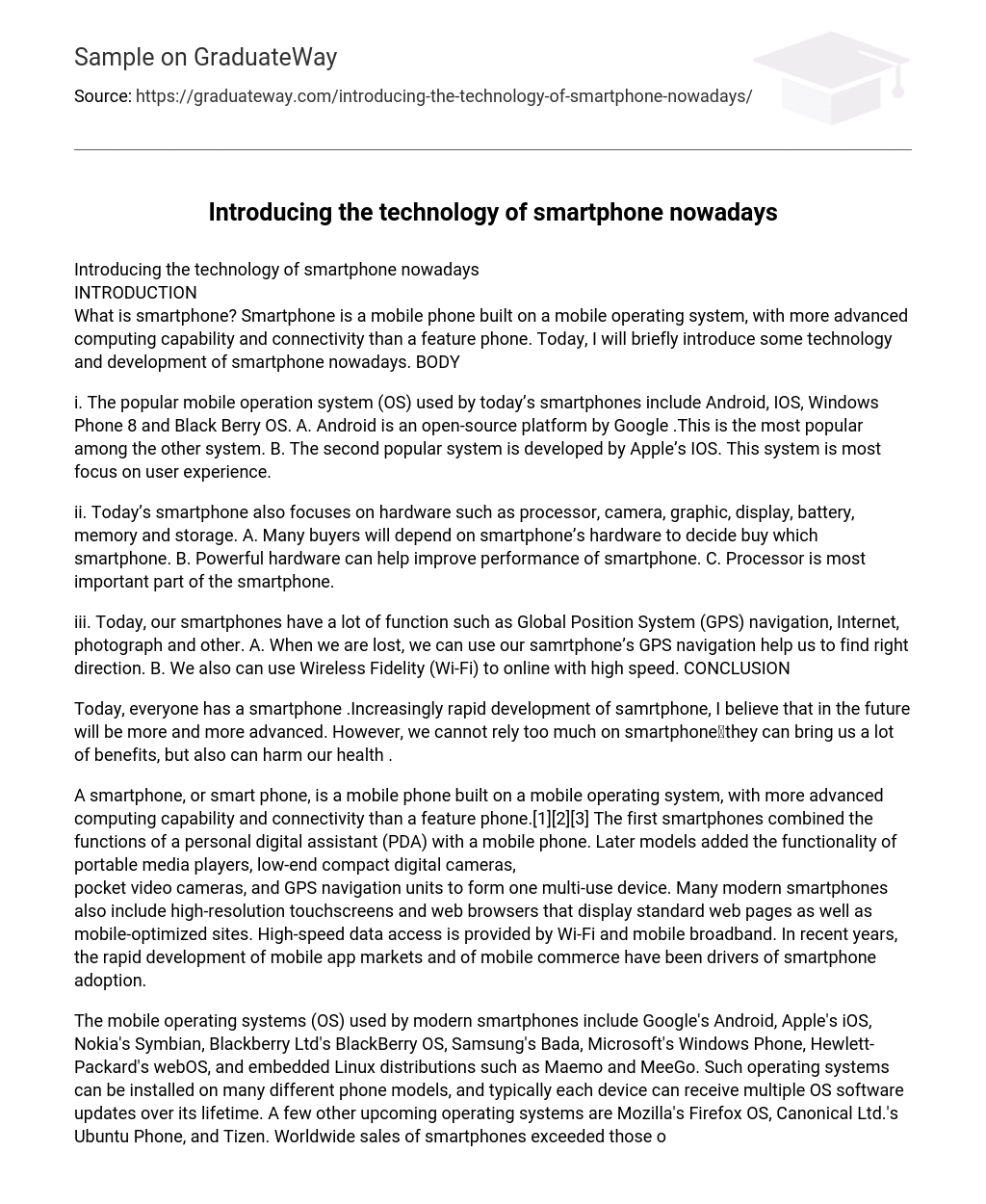INTRODUCTION
Smartphones are mobile phones with enhanced computing capability and connectivity, built on a mobile operating system. This article offers a concise introduction to the present technology and development in smartphones.
BODY
The top mobile operating systems (OS) for smartphones are Android, IOS, Windows Phone 8, and Black Berry OS. Android is the leading system as it was created by Google and operates as an open-source platform. In second place is Apple’s IOS, which prioritizes user experience.
The significance of hardware components in smartphones is extremely important as they play a crucial role in determining the quality and performance. The processor, camera, graphics, display, battery, memory, and storage all contribute to the overall functionality. When considering buying a smartphone, the hardware is often a major deciding factor. Strong hardware components, particularly the processor, greatly enhance performance.
Modern smartphones come with various functionalities such as GPS navigation, internet connectivity, camera capabilities, and more. The built-in GPS system accurately guides us when we need directions. Moreover, we can conveniently access fast internet via Wi-Fi.
CONCLUSION
There is no denying the widespread use of smartphones today. Their continuous advancements suggest even greater capabilities in the future. Nonetheless, it is crucial to recognize that an excessive dependency on smartphones can have both beneficial and detrimental effects on our well-being.
A smartphone, alternatively referred to as a smart phone, is a type of mobile phone that runs on a mobile operating system and provides enhanced computing capability and connectivity in comparison to a feature phone.
The initial smartphones combined a PDA and a mobile phone, while later versions added more features like media players, cameras, video cameras, and GPS navigation units. This resulted in a versatile device. Additionally, modern smartphones often include high-resolution touchscreens, web browsers that can display standard and mobile-optimized websites, and offer fast data access through Wi-Fi and mobile broadband. The rapid growth of mobile app markets and mobile commerce has greatly impacted the widespread use of smartphones in recent years.
Modern smartphones utilize various mobile operating systems (OS) like Google’s Android, Apple’s iOS, Nokia’s Symbian, Blackberry Ltd’s BlackBerry OS, Samsung’s Bada, Microsoft’s Windows Phone, Hewlett-Packard’s webOS, and embedded Linux distributions such as Maemo and MeeGo. These OSs can be installed on different phone models and typically receive multiple software updates over time. In addition to these established OSs, there are upcoming ones like Mozilla’s Firefox OS, Canonical Ltd.’s Ubuntu Phone, and Tizen. By early 2013, smartphone sales worldwide had surpassed those of feature phones. As of July 18th, 2013, Android and iPhone smartphones make up 90% of global handset sales.





